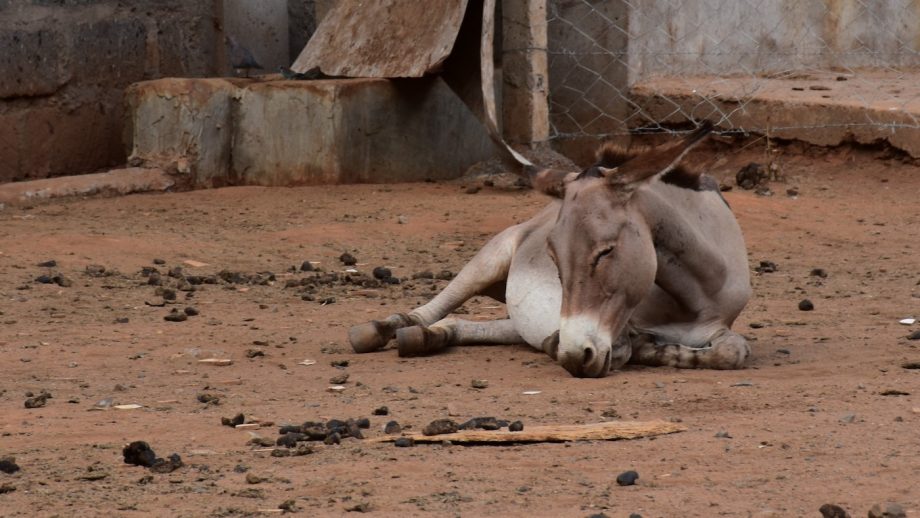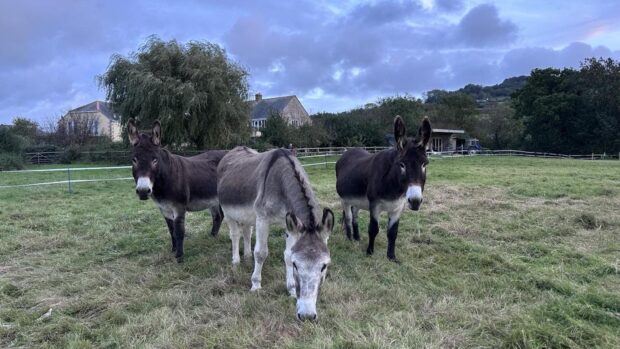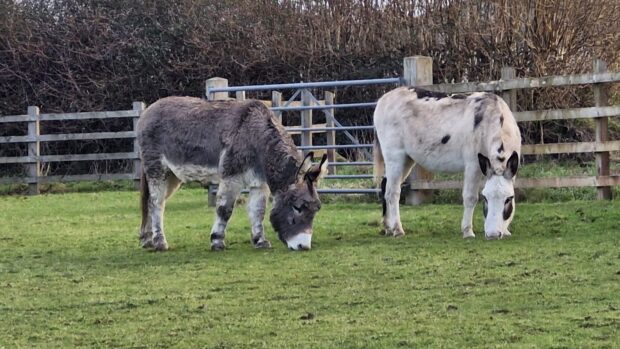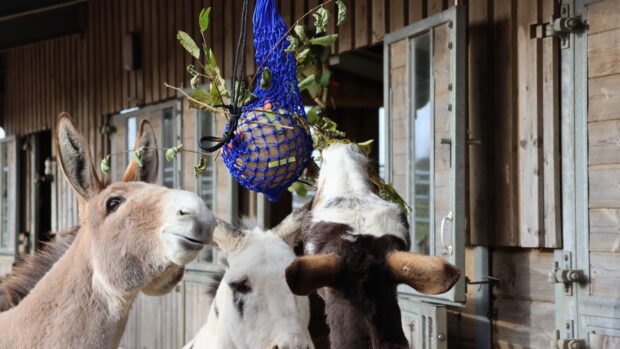Thousands of donkey skins are being sold illegally on unregulated websites and well-known social media platforms, a report has unveiled.
The Donkey Sanctuary report, The Global Trade in Donkey Skins: A Ticking Time Bomb, “uncovers for the first time the vast online illegal trading network sending millions of donkeys to their deaths”. Included are findings from research by a team from Oxford University’s Saïd Business School and wildlife conservation research unit, who were able to identify a “clear scientific link” between illegal wildlife trade and donkey skin trade.
A spokesman for the Donkey Sanctuary said it is estimated that more than 4.8 million donkeys are trafficked and slaughtered every year for their skins, which are used in the production of ejiao – a product used in traditional Chinese remedies.
“The donkeys suffer at every point of this process, from source to slaughter, due to the brutal and inhumane conditions that are a hallmark of this industry,” said the spokesman.
“Even the most vulnerable donkeys, including pregnant mares, young foals, and the sick and injured, are taken and traded without consideration for their welfare or their pain.”
The report found there was a “vast online network” of organised criminals offering donkey skins for sale, often alongside other illegal wildlife products including rhino horns, pangolin scales, elephant ivory and tiger hides.
“Evidence of 382 individual traders was identified on business-to-business (B2B) ecommerce sites offering donkey hides, with almost 20% of those traders also selling other wildlife products. In some extreme cases, the Donkey Sanctuary uncovered these traders were additionally trafficking narcotics, fake passports and human hair, providing further evidence of how deeply the donkey skin trade is embedded in organised crime,” said the spokesman.
“The illicit trade also extends beyond B2B ecommerce sites to well-known social media platforms like Facebook, Instagram and Twitter. The Donkey Sanctuary uncovered dozens of adverts for skins on sale on social media, which suggests that it is a thriving marketplace for the trade, with one trader in Kenya saying he had 2,000 skins available immediately. Many listings feature images of dead and dying donkeys being kept in inhumane conditions.”
The spokesman said few B2B or social media sites have policies in place to prevent donkey skin traders from “taking advantage” of their sites, or remove the traders who have existing pages. The charity identified several traders “openly admitting” to the “illegality” of their merchandise, and offered prospective buyers information on how they will avoid the skins being intercepted by the authorities during transit.
Under Facebook and Instagram commerce policies, listings on their platforms may not promote “the buying or selling of animals or animal parts”. Buyers and sellers are responsible for complying with “all applicable laws and regulations” and failure to comply may result in consequences including but not limited to, removal of listings, rejection of product tags, or suspension or termination of a user’s access to the platforms.
Twitter guidelines state users may not use the service for “any unlawful purpose or in furtherance of illegal activities”, including selling, buying or facilitating transactions in illegal goods or services.
The Donkey Sanctuary is calling on all ecommerce and social media sites to immediately ban the sale of donkey skins and remove all existing listings from their platforms.
“The continuous demand from the ejiao industry has had a significant impact on donkey populations. Many donkeys slaughtered for the ejiao trade are stolen from families who rely on them for their livelihoods, with devastating consequences for their economic prospects,” said the spokesman.
“Up to 10 million communities in the developing world rely on working donkeys, and where donkeys are stolen it almost always falls to women and girls to pick up the ‘donkey work’ left behind, denying many girls the opportunity to continue their education.”
Donkey Sanctuary acting chief executive Marianne Steele said there is “no doubt” the global ejiao trade is having a “devastating impact” on the welfare of donkeys around the world.
“This new research demonstrates just how vast the online donkey skin trade has become, and how entrenched it is with criminal activity and other illegal wildlife trafficking,” she said.
“By cracking down on the sale of donkey skins on their platforms, ecommerce and social media sites will not only prevent considerable cruelty to donkeys, but also help eliminate the other criminal activity that is taking place alongside it and support thousands of families who rely on their donkeys to survive.”
Facebook and Instagram did not respond to H&H’s request for comment. H&H has contacted Twitter.
You might also be interested in:

Donkeys saved from skin trade slaughter had missing ears, infections and open wounds
Six people been found guilty of animal cruelty, and of living in South Africa illegally.

‘Fantastic step’ as 10-year ban on donkey slaughter announced

Subscribe to Horse & Hound magazine today – and enjoy unlimited website access all year round
Horse & Hound magazine, out every Thursday, is packed with all the latest news and reports, as well as interviews, specials, nostalgia, vet and training advice. Find how you can enjoy the magazine delivered to your door every week, plus options to upgrade your subscription to access our online service that brings you breaking news and reports as well as other benefits.




